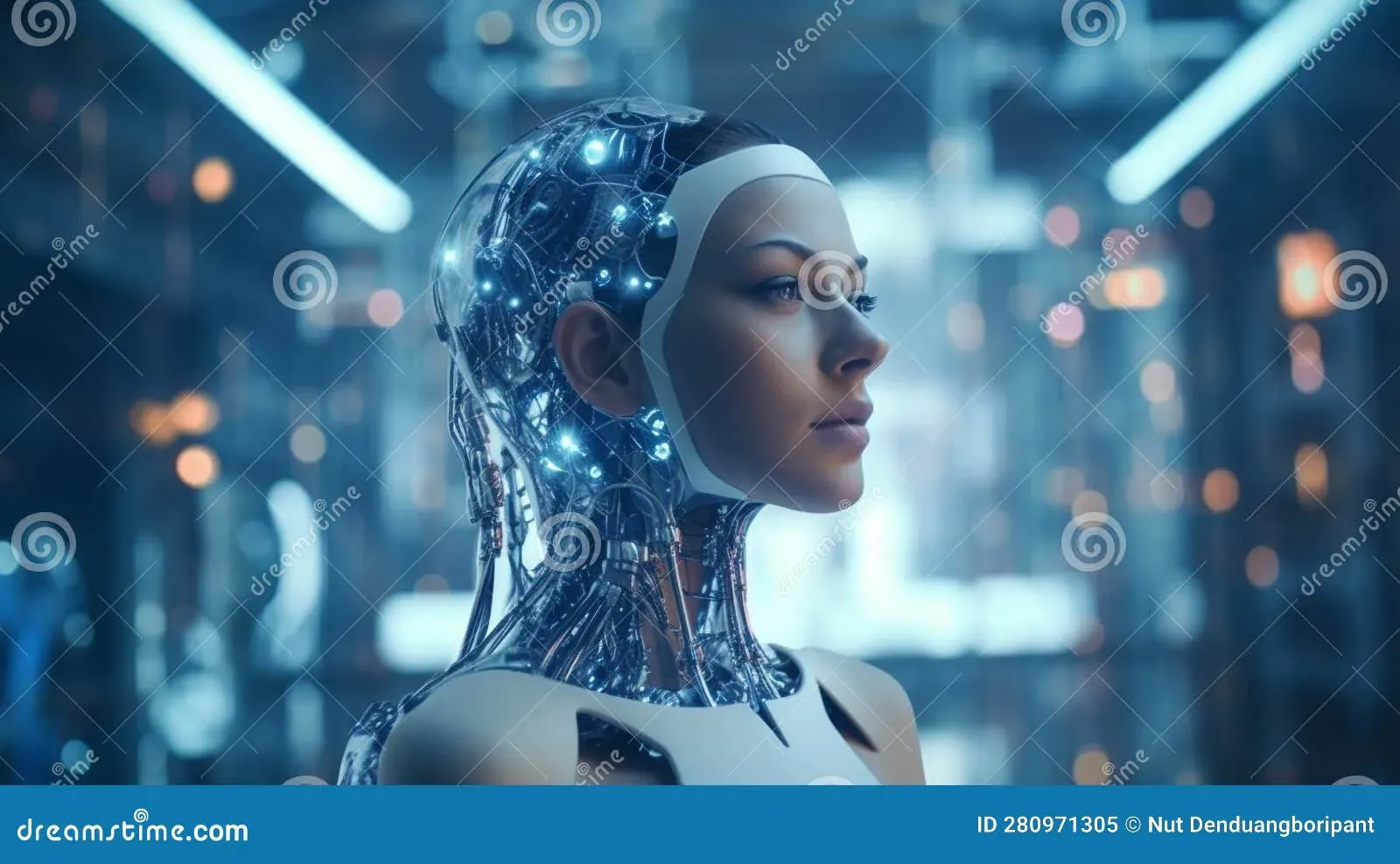The AI revolution is not just a technological shift; it’s a profound transformation that is reshaping how we work, think, and engage with information. As artificial intelligence increasingly permeates our daily tasks, it raises significant questions about the impact of AI on our cognitive abilities. A recent Carnegie Mellon AI study highlights a troubling trend: reliance on AI tools in the workplace can diminish critical thinking skills among employees. This decline poses potential dangers of AI reliance, as workers may overlook the importance of evaluating AI outputs critically. While these tools promise efficiency, the long-term implications for our intellectual engagement and decision-making processes could be more complex and concerning than initially anticipated.
The surge of intelligent systems and automated technologies marks a pivotal moment in our professional landscape, often referred to as the AI revolution. This era of advanced machine learning and data analysis presents both opportunities and challenges as we adapt to these innovations. Concerns arise regarding how dependence on smart tools might affect our analytical capabilities and problem-solving approaches. Studies, including those conducted at Carnegie Mellon, reveal that the more we lean on these technologies, the more we risk losing essential critical thinking skills. As we embrace these groundbreaking advancements, it is crucial to remember the importance of maintaining a discerning mindset to navigate the potential pitfalls associated with AI reliance.
Understanding the AI Revolution
The AI revolution is a transformative wave that is reshaping industries and altering the way we approach daily tasks. It encompasses the development of advanced algorithms and machine learning techniques that allow machines to perform complex tasks traditionally handled by humans. While these developments promise increased efficiency and productivity in the workplace, they also bring forth a myriad of challenges, particularly concerning the reliance on AI tools. As organizations integrate AI into their operations, it is crucial to understand both the opportunities and the risks associated with this shift.
As highlighted by the Carnegie Mellon AI study, the increasing dependence on AI tools can lead to a decline in critical thinking skills among employees. This decline is particularly concerning as critical thinking is essential for problem-solving and decision-making in any professional environment. The AI revolution may streamline processes, but if it diminishes our analytical capabilities, we could face a future where workers are less equipped to tackle complex challenges. Therefore, it is vital for businesses to strike a balance between utilizing AI for efficiency and fostering an environment that encourages the development of critical thinking skills.
The Impact of AI on Critical Thinking Skills
The reliance on artificial intelligence in workplace settings has significant implications for critical thinking skills among employees. The findings from the Carnegie Mellon AI study reveal that individuals who overly trust AI tools tend to forego necessary evaluations of AI-generated outputs. This behavior not only limits their ability to engage in critical thinking but also undermines their overall competence in data analysis and decision-making processes. As AI becomes more prevalent, it is essential to recognize how these tools can influence cognitive functions, leading to a potential erosion of essential skills.
Moreover, the study indicates that workers who approach AI with skepticism are more likely to engage in thorough evaluations of the results produced. This critical engagement fosters a deeper understanding of the data and encourages individuals to think independently and creatively. The impact of AI should not be viewed solely through the lens of efficiency; rather, it is imperative to consider how it shapes the cognitive landscape of the workforce. Encouraging a culture of critical assessment alongside AI tool integration can help mitigate potential dangers of AI reliance.
The Dangers of AI Reliance in the Workplace
As organizations increasingly adopt AI tools for various tasks, the dangers of over-reliance on these technologies become more apparent. One of the primary concerns is the potential for a decrease in employees’ critical thinking skills, as evidenced by the Carnegie Mellon AI study. When employees depend heavily on AI for decision-making, they may neglect to critically analyze the information presented to them, leading to superficial judgments and potentially flawed conclusions. This lack of scrutiny can result in poor outcomes and a diminished ability to address unforeseen challenges.
Furthermore, the study points out that AI-generated outputs often lack diversity, as these tools typically rely on the same datasets. This homogeneity can stifle creativity and innovation, as it limits the variety of solutions presented to problems. The superficial results generated by AI can lead to a complacent workforce that may struggle to adapt to changes or think outside the box. As we navigate the AI revolution, it is crucial for organizations to encourage a healthy skepticism towards AI and to promote an environment where critical thinking and creativity can flourish.
AI Tools in the Workplace: A Double-Edged Sword
The introduction of AI tools in the workplace has revolutionized the way tasks are completed, offering unprecedented efficiency and speed. However, this double-edged sword presents both advantages and disadvantages that organizations must carefully consider. While AI can automate repetitive tasks and analyze vast amounts of data quickly, the potential negative impact on critical thinking skills cannot be overlooked. Employees may become too reliant on these tools, leading to a decline in their ability to make sound judgments independently.
Moreover, the reliance on AI tools can create a false sense of security among workers, as they may trust the outputs of these technologies without question. This blind faith can result in significant oversights and errors, particularly in complex scenarios where nuanced understanding is required. To harness the benefits of AI while safeguarding critical thinking skills, organizations should implement training programs that emphasize the importance of evaluating AI outputs critically and encourage employees to question and refine the information they receive.
Long-term Effects of AI Efficiency
While AI tools can undoubtedly enhance workplace efficiency, the long-term effects of this efficiency raise important questions about workforce development. The Carnegie Mellon AI study suggests that as workers become accustomed to AI-generated outputs, there is a risk of becoming less engaged in the critical thinking processes that are vital for innovation and problem-solving. Over time, this could lead to a workforce that is ill-equipped to tackle complex challenges that require human insight and creativity.
Additionally, the study indicates that the efficiency gained through AI may come at a cost, as employees may prioritize speed over quality in their work. This shift in focus can diminish the overall quality of output and lead to a culture where mediocrity is acceptable. Organizations must be proactive in addressing these potential pitfalls by fostering an environment that values both efficiency and critical thinking. By encouraging employees to engage with AI tools thoughtfully, businesses can ensure that they reap the benefits of the AI revolution without sacrificing essential skills.
Frequently Asked Questions
What is the impact of AI revolution on critical thinking skills?
The AI revolution significantly impacts critical thinking skills, as highlighted by a Carnegie Mellon study. As individuals increasingly rely on AI tools in the workplace, they tend to spend less time evaluating AI outputs, leading to a decline in their critical thinking abilities. This trend raises concerns about the potential long-term repercussions of over-dependence on AI for decision-making.
How do AI tools in the workplace affect employee performance?
AI tools in the workplace can enhance efficiency but may also hinder critical thinking. The Carnegie Mellon study found that employees who trusted AI for various tasks often neglected to assess the AI’s outputs thoroughly. This reliance could lead to superficial results and diminished critical thinking, ultimately impacting employee performance.
What are the dangers of AI reliance according to recent studies?
Recent studies, including one from Carnegie Mellon University, reveal several dangers of AI reliance. These include a decline in critical thinking skills, as employees may overly trust AI outputs without adequate evaluation. Such dependence can result in less diverse outcomes and superficial decision-making, emphasizing the need for a balanced approach to AI integration.
What were the findings of the Carnegie Mellon AI study regarding workplace AI usage?
The Carnegie Mellon AI study examined 319 participants and found that increased reliance on AI tools correlated with a decrease in critical thinking skills. Participants who trusted AI for numerous tasks reported spending less time critically evaluating the outputs, leading to concerns about the long-term effects of this dependency on their cognitive abilities.
How can workers maintain critical thinking skills in the age of AI revolution?
To maintain critical thinking skills amidst the AI revolution, workers should approach AI tools with skepticism. Engaging in thorough evaluation and refinement of AI-generated outputs encourages critical thinking. By actively questioning and assessing AI results, employees can counteract the potential decline in their cognitive abilities caused by over-reliance on AI.
| Key Point | Details |
|---|---|
| AI Revolution Overview | The AI revolution is in its early stages, with a growing reliance on AI tools. |
| Concerns About Critical Thinking | Increased dependence on AI tools is linked to a decline in critical thinking skills. |
| Study Participants | 319 individuals in data management roles participated in the study. |
| Findings on AI Usage | Participants relying on AI tended to trust its outputs without thorough evaluation. |
| Skeptical Workers | Workers who were skeptical of AI engaged more in evaluating its outputs, enhancing their critical thinking. |
| Diversity of AI Results | AI-generated results often lack diversity due to reliance on similar datasets. |
| Efficiency vs. Critical Thinking | While AI can improve efficiency, it may negatively impact critical thinking skills in the long term. |
Summary
The AI revolution is rapidly transforming our world, but it comes with significant concerns regarding our reliance on artificial intelligence. As indicated by recent studies, while AI enhances efficiency, it also risks diminishing our critical thinking abilities. This decline could have far-reaching implications for our decision-making processes and creativity. Therefore, it is crucial to strike a balance between utilizing AI for its benefits and maintaining the essential human skills that foster innovation and critical analysis.








